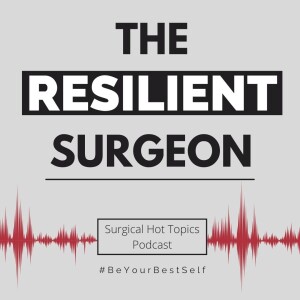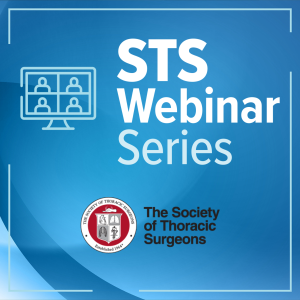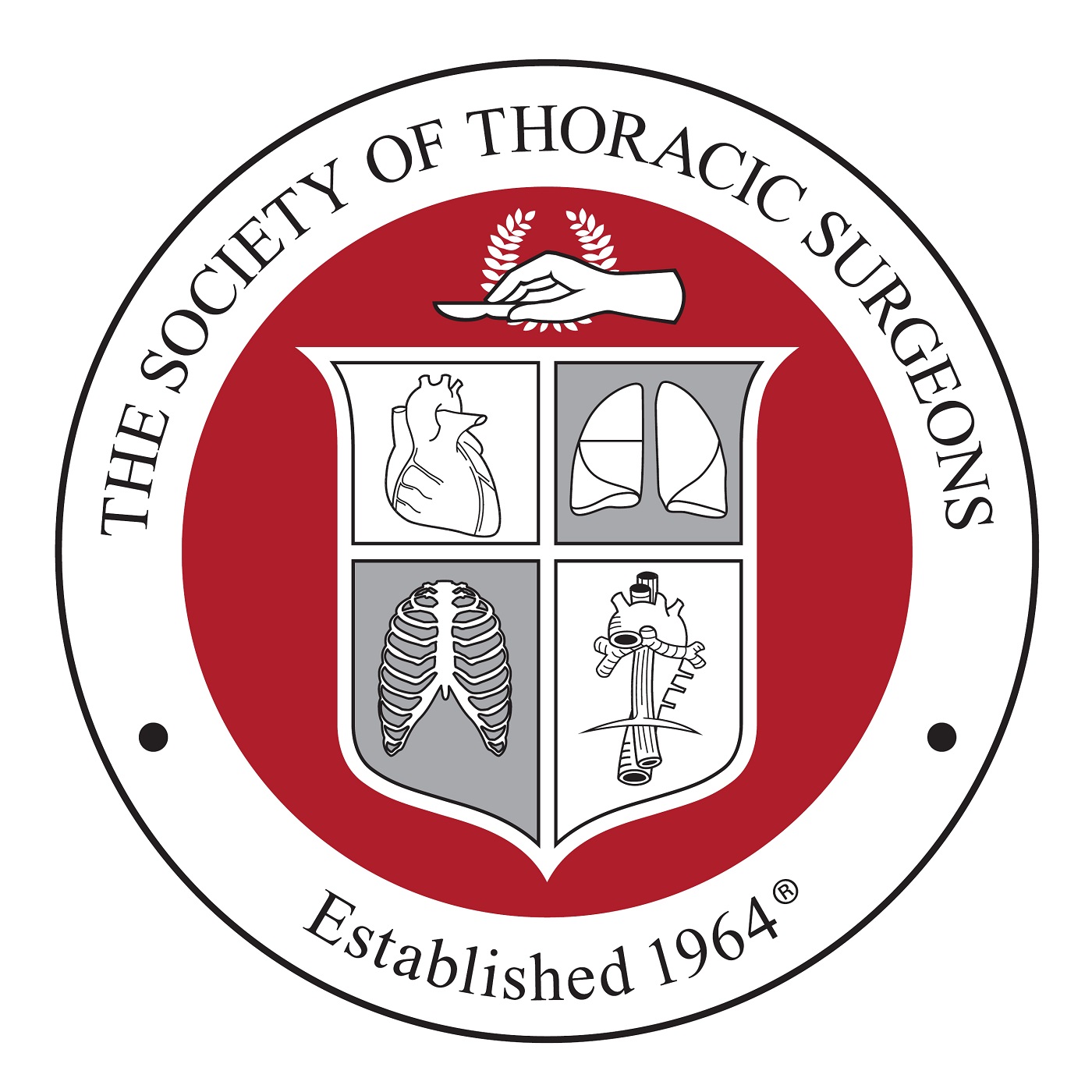Episodes

Friday Oct 29, 2021
The Resilient Surgeon: Dr. Wayne Sotile
Friday Oct 29, 2021
Friday Oct 29, 2021
In this episode, Dr. Michael Maddaus interviews Dr. Wayne Sotile, an expert in resilience and work/life balance for high performing people and considered one of the world’s most seasoned clinicians specializing in life coaching for physicians. Over the years, he has counseled and coached more than 30,000 physicians and their families, while gaining a deep, critical understanding of the relationship dynamics and lifestyles of physicians. Dr. Sotile describes the “privilege” of physicians and medical families allowing him “private glimpses into their psychosocial underbelly.” He specifically addresses the loneliness that surgeons and other health care professional sometimes feel and describes the importance of updating our “mental maps” and embracing a pride of survivorship. “Get out of the internal beating up of ourselves and others with blaming or shaming messages. Nobody ever grows from being blamed or shamed,” Dr. Sotile reminds listeners. Physicians, he says, need to recognize that they are extraordinary people—smarter, work harder, and more hard-headed than most. Hear many more emotionally powerful messages and practical, solution-focused advice.
“The Resilient Surgeon” is a program from the Society designed to inspire cardiothoracic surgeons to be their best selves, in and out of the OR, using scientifically proven tools and recovery strategies of the world’s top performers.
Dr. Sotile can be reached at sotile.com.
Learn more about STS wellness efforts at sts.org/wellness.

Friday Oct 22, 2021
Friday Oct 22, 2021
In this episode of the STS Webinar Series, authors and editors of the STS Cardiothoracic Surgery E-book discuss the potential impact of such a comprehensive, interactive resource on congenital heart surgery practice and education. Topics include the value of detailed illustrations and embedded surgical videos for resident education, portability and access by members at every level of the surgical team, and benefits of the e-book in securing informed consent from patients and their families. Participants include Erle H. Austin III, MD (moderator), Carl L. Backer, MD, Jeffrey P. Jacobs, MD (moderator), Robert D.B. Jaquiss, MD, John E. Mayer Jr., MD, Jennifer C. Romano, MD, MS (moderator), and James S. Tweddell, MD (moderator).

Friday Oct 15, 2021
The Resilient Surgeon: Dr. Jud Brewer
Friday Oct 15, 2021
Friday Oct 15, 2021
In this episode, Dr. Michael Maddaus interviews Dr. Jud Brewer—a New York Times best-selling author, neuroscientist, and thought leader in the field of habit change and the “science of self-mastery.” This fascinating conversation takes us on a journey inside the brain, shedding light on the mechanics of our constant inner dialogue. Dr. Jud shares his straightforward approach that has been known to turn traditional advice upside down. According to this addiction psychiatrist, we all struggle with something—our brains are set up that way, he says. Listeners will learn about the impact of the modern world on the creation of addictions and habits. Dr. Jud explains that our brains hate uncertainty and habits help us survive by “planning for the future.” This expert guest recommends a three-gear process for unwinding a bad habit. Dr. Jud also touches on willpower, suggesting that it is “more myth than muscle.” “The Resilient Surgeon” is a program from the Society designed to inspire cardiothoracic surgeons to be their best selves, in and out of the OR, using scientifically proven tools and recovery strategies of the world’s top performers.
Dr. Jud can be reached at drjud.com and @judbrewer. Learn more about STS wellness efforts at sts.org/wellness.

Friday Oct 01, 2021
The Resilient Surgeon: Dr. Suniya Luthar
Friday Oct 01, 2021
Friday Oct 01, 2021
In this episode, Dr. Maddaus interviews Dr. Suniya Luthar, professor emerita at the Teachers College, Columbia University, and expert on building supportive, authentic connections in the face of stress. Listeners will learn details about her research, which has demonstrated how critical it is to our mental health and resilience to have a separate space in a trusted, safe, and supportive environment outside of home and work. Dr. Luthar explains how our fast-paced, high-stress world often leads to isolation and loneliness and how real connections with others is the glue that holds our mental well-being together. “For many of us who have the mindset of ‘we must be strong, we must be self-sufficient,’ the downside is that it sometimes becomes difficult to drop that shield, that armor and let people in. That is obviously very, very destructive for our mental health,” she said. Dr. Luthar discusses the significant stresses of being a working mother and the “enormous amount of emotional work” required to be “captains of the ship” at home. Hear also about the meaningful concept of a “support wallet,” which may help you “feel seen for the person you are at your core.” “The Resilient Surgeon” is a program from the Society designed to inspire cardiothoracic surgeons to be their best selves, in and out of the OR, using scientifically proven tools and recovery strategies of the world’s top performers.
Dr. Luthar can be reached at suniyaluthar.org and @suniya_luthar.
Learn more about STS wellness efforts at sts.org/wellness.

Friday Sep 24, 2021
Friday Sep 24, 2021
In the latest episode of the STS Webinar Series, an expert panel discusses findings and recommendations from a new guideline on patient blood management developed by STS and three other medical specialty organizations. The panel, made up of guideline coauthors, shares 10 key takeaways about conserving blood resources, managing anemia, optimizing coagulation, and improving patient outcomes. Participants include: Victor A. Ferraris, MD, PhD, R. Scott McClure, MD, MS, Susan D. Moffatt-Bruce, MD, PhD, MBA (moderator), Linda Shore-Lesserson, MD, and Pierre R. Tibi, MD.

Friday Sep 17, 2021
The Resilient Surgeon: Dr. Michael Maddaus
Friday Sep 17, 2021
Friday Sep 17, 2021
In this episode, Dr. Wayne Sotile serves as a guest interviewer, speaking with the host of The Resilient Surgeon, Dr. Michael Maddaus. During this incredibly honest conversation, Dr. Maddaus generously shares his own personal stories and real-world experiences that included a poor and abusive alcoholic upbringing, 24 arrests as a juvenile, five stints in reform school, and a devastating personal fall following his addiction to prescription narcotics. So how did he end up in medical school? Dr. Maddaus credits his job delivering furniture, an unlikely mentor, and some vocational interest tests. While navigating all of these ups and downs—always with grit and resilience—what did he learn? “I learned to be very comfortable being uncomfortable, how to adapt and get along in various environments, and how to work with a lot of different types of people,” he explains. The stories you will hear from Dr. Maddaus prove that resilience is a journey, not a destination. “The Resilient Surgeon” is a program from the Society designed to inspire cardiothoracic surgeons to be their best selves, in and out of the OR, using scientifically proven tools and recovery strategies of the world’s top performers.
Dr. Maddaus can be reached at MichaelMaddaus.com and @MMaddaus.
Learn more about STS wellness efforts at sts.org/wellness.

Friday Sep 03, 2021
The Resilient Surgeon: Dr. Robert Lustig
Friday Sep 03, 2021
Friday Sep 03, 2021
In this episode, Dr. Michael Maddaus interviews Dr. Robert Lustig, pediatric neuroendocrinologist and author of Metabolical: The Lure and the Lies of Processed Food, Nutrition, and Modern Medicine. This fascinating discussion of metabolic health and nutrition exposes some of the leading myths that underlie the current pandemic of diet-related disease. Dr. Lustig explains that the food business—by pushing processed food loaded with sugar—has hacked our bodies and minds. Hear scientifically-based guidance on how to protect our bodies and minds from the “ravages of processed food.” Dr. Lustig shares his food philosophy, which can be summed up in six words: protect the liver, feed the gut. Real food (no labels!) does both. Processed food—a “poison”—does neither, and instead, floods the liver and starves the gut. Listeners also will learn that it’s not what’s in the food, but what’s been done to the food that matters. “The Resilient Surgeon” is a program from the Society designed to inspire cardiothoracic surgeons to be their best selves, in and out of the OR, using scientifically proven tools and recovery strategies of the world’s top performers.
Dr. Lustig can be reached at robertlustig.com and @RobertLustigMD.
Learn more about STS wellness efforts at sts.org/wellness.

Friday Aug 20, 2021
Friday Aug 20, 2021
In the latest episode of the STS Webinar Series, a panel of infectious disease, cardiology, and cardiothoracic surgery experts discusses findings and recommendations from a new guidance statement on perioperative vaccination for CT surgery patients. They offer personal experiences and advice on administering the COVID vaccine in the perioperative period, potential adverse effects, and considerations for booster shots. Participants include Mara B. Antonoff, MD, David M. Aronoff, MD, Rakesh C. Arora, MD, PhD (moderator), Adam F. Burdorf, DO, Daniel T. Engelman, MD, and HelenMari L. Merritt-Genore, DO (moderator).

Friday Aug 20, 2021
The Resilient Surgeon: Dr. Daniel Z. Lieberman
Friday Aug 20, 2021
Friday Aug 20, 2021
In this episode, Dr. Michael Maddaus interviews Dr. Daniel Z. Lieberman, psychiatrist and author of the best-selling book, The Molecule of More. Why are we obsessed with the things we want and bored when we get them? Why is addiction “perfectly logical” to an addict? Dopamine, according to Dr. Lieberman. This chemical pushes us to achieve greatness, but it also can lead to our downfall. Listeners learn fascinating details about the general science of dopamine and the role it plays in directing behavior. Dr. Lieberman also discusses other “brain pleasure molecules” (serotonin, endorphins, oxytocin, and endocannabinoids) and shares how mental wellbeing critically depends on the skillful management of these brain chemicals. “The Resilient Surgeon” is a program from the Society designed to inspire cardiothoracic surgeons to be their best selves, in and out of the OR, using scientifically proven tools and recovery strategies of the world’s top performers.
Dr. Lieberman can be reached at www.danielzlieberman.com.
View the TED Talk, “What Makes a Good Life? Lessons from the Longest Study on Happiness,” mentioned during this episode.
Learn more about STS wellness efforts at sts.org/wellness.

Friday Aug 06, 2021
The Resilient Surgeon: Wendy Wood, PhD, MS
Friday Aug 06, 2021
Friday Aug 06, 2021
Forming good habits is hard and breaking bad habits can be even harder. In this episode of The Resilient Surgeon, Dr. Michael Maddaus talks to social psychologist Wendy Wood about managing your environment, understanding your second self (the hidden part of your brain that is on autopilot), and ways to remove friction so that you can develop habits to #BeYourBestSelf.
Learn more about STS wellness efforts at sts.org/wellness.
More about Wendy Wood
LinkedIn: https://www.linkedin.com/in/wendy-wood-15180a15/
Twitter: @ProfWendyWood
Website: https://goodhabitsbadhabits.com

